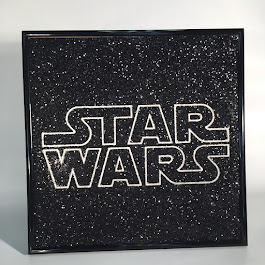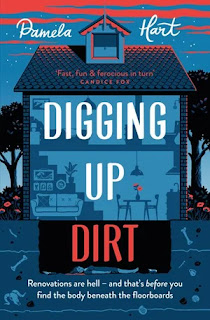 |
| Album cover. Fair use |
I love film music. I always have. I got my younger brother interested too, and I remember him saving his pennies for a double album of Star Wars - records, not CDs - which he still has.
At one time, I could tell you which film composer had composed a tune, as long as I had heard their work before. I have favourites, mostly composers for historical films, such as Miklos Rosa, Erich Korngold, Elmer Bernstein and Alex North. Did you know Alex North, who did the music for Spartacus, also composed a score for 2001: A Space Odyssey? It’s true! The score we know now, a mixture of classical tunes, starting with Thus Spake Zarathustra was meant to be just a filler, to give some idea of what the producers wanted. They decided that worked really well and scrapped Alex North’s score. I believe you can still buy it.
Elmer Bernstein, who composed the amazing score for The Ten Commandments, also did the theme tune for Arthur Of The Britons, a British children’s TV series about Arthur as a British leader living in a village with his adoptive father Llud and his foster brother Kai. I’m sure there is a story behind this gig, but I don’t know it. He certainly did The Ten Commandments before Arthur Of The Britons.
Erich Korngold was a famous Hollywood composer of historical film music, such as The Adventures Of Robin Hood, and The Prince And The Pauper, but also a composer of concert hall music. You can hear some recognisable film tunes woven into his concert hall music, and why not?
Who can forget Bernard Herrman’s score for The Day The Earth Stood Still, with an eerie theremin playing? That tune at the start is a favourite of mine.
These days, it’s John Williams, who wrote music for Lost In Space, as Johnny Williams, well before his glorious symphonic scores were connected with Star Wars and Harry Potter. Howard Shore, a composer in the style of Williams, made Lord Of The Rings come to life for me.
Ennio Morricone was another favourite, but my first experience of his music was not a spaghetti Western or The Mission, but a TV mini series called Moses Lawgiver, with Burt Lancaster in the title role. I haven’t seen it in years, but I’m still humming Morricone’s music, long after forgetting the story details.
Film music is a vital part of the stories told in film and TV. Without it, the emotions, the excitement and drama, even the humour, just wouldn’t be the same. I know, there are films complimented for background silence, but either they are made especially to work without music, or they just don’t appeal to me. I have a friend who says she doesn’t notice film music, which is fine, because it’s there to enhance, not dominate, but she would certainly notice if it wasn’t there.
As you probably know, I have been catching up with the Marvel universe, and that includes the music. Recently I have re-watched two of the Disney+ series, Hawkeye and Loki.
The series Hawkeye was about the most relatable of the Avengers, their archer. He did do some dreadful things in his grief at losing his family in the Blip, when half the world’s population was wiped out(he got them back at the end of Avengers: Endgame). But there is no secret identity, though nobody knows he was the vigilante known as Ronin. When a young woman, Kate Bishop, gets hold of his Ronin costume he has to find out what is going on…and then keep her from being murdered. And she is a huge fan of his who was inspired to learn archery by seeing him fight during an alien invasion.
He just wants to go home to his farm to spend Christmas with his family.
The mood of Hawkeye’s score, written by Christophe Beck and Michael Paraskevas, is playful and humorous, mostly consisting of Christmas-themed tunes, including a very sinister-sounding version of “Dance Of The Sugarplum Fairy” when the villains were driving towards the good guys! It even includes a song, “Save The City” by Mark Shaiman and Scott Wittman, supposedly from a Broadway musical about the Avengers, Rogers: The Musical. The first episode showed a bit of the song being performed on Broadway, then the full song as a post-credits scene after the last episode. It was hilarious! I actually wanted someone to write that show for real, though it was deliberately silly.
The score fitted the series beautifully. It was set at Christmas, hence the Christmas songs, and while there were some serious bits, it was meant to be fun. The music enhanced that.
The score of Loki, by Natalie Holt, though there is some humour in the story, is a lot more serious, as is the series itself. Natalie Holt has just been shortlisted for an award for this score, so I thought what-the-heck and bought the download, which I played as a background for my writing.
Each episode ended with an existing song that comments on the story of that episode. I didn’t get those songs with the download, maybe a copyright issue, but they were all well chosen.
There is one song on the album, in Norwegian and English, “Jeg Saler Min Ganger”, written for this episode, in the style of a folk song, by Benedicte Maurseth and Erlend Nodtvedt. In the show, it is an Asgardian drinking song, sung on a train by the drunken hero, with an English chorus and Norwegian verses. He is leading the passengers in the song, and teasing the beautiful Sylvie, the woman he has just fallen in love with.
Natalie Holt uses different styles of music, whether something jazzy or symphonic - and a theremin is used several times. Various pieces of classical music are slipped in and, in the fifth episode, a 32 person choir is added.
My favourite track on the album was the sweeping symphonic tune that is played when Classic Loki, played by Richard E. Grant, is distracting the cloud monster that guards the citadel at the end of time, to allow our hero and heroine to enchant the creature and get through. As he sacrifices himself for them, he builds a duplicate of his much-missed home, Asgard, towers and all, to a tune that begins with “Ride Of The Valkyries”, very appropriate for these Norse gods, even if it was written by a German.
Do you have any favourite film composers or music?
